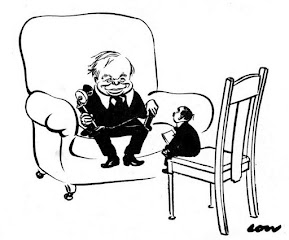A saint he ain’t
Pope John XXIII, Ignatius Loyola, founder of the Jesuits, and Cardinal Newman are among more than 70 names being considered by the Church of England as candidates for its version of sainthood (Guardian, 12 July).
Bizarre choices, perhaps, but even more so is William Morris, 19th century artist and revolutionary socialist, who is also included.
Did Morris believe in God? After speaking about socialism at one meeting, Morris was told by a clergyman:
"That’s an impossible dream of yours, Mr Morris; such a Society would need God Almighty Himself to manage it. Morris got up . . . and shaking his fist to emphasise his words, he said, ‘well, damn it, man, you catch your God Almighty — we’ll have him!' "
Had he even any time for the C of E? Indeed “he drove home the fact that organised religion was one of the strongest pillars of capitalist orthodoxy’” (Both quotes from E.P. Thompson’s William Morris: Romantic to Revolutionary).
Getting death-bed converts is one thing, but grave-robbing is something else.
More snouts for the trough
The horses galloped and the women in silly hats paraded alongside a select crowd of businessmen, politicians, diplomats, etc. A scene from Royal Ascot? No, this was Warsaw racecourse and the event was the Summer Gala held by the Business Centre Club (BCC), Poland’s equivalent of the CBI.
BCC’s chairman told the guests that the Club’s members, representing 600 companies with combined capital of $19.3 billion, “form the nucleus of Poland’s incipient middle-class”, and a Cardinal completely misjudged his audience by appealing “for ethics and fair play in business”.
All this is reported in the English-language newspaper Warsaw Voice (16 July) which also told us that, following the speeches, the guests “rushed” to get at the free food and drink provided, and added: “However, food and drink did not stand in the way’ of talk about money and new deals. ”
Ex-communists in the government arc apparently holding-up the development of full-blooded private enterprise capitalism in Poland, but not so as you’d notice.
Class confusion
Some workers imagine they are “professionals”, “middle class” or even “upper middle class”. They say “I get a salary not a wage, I wear a collar and tie and not hobnailed boots and overalls.”
Even capitalists are deluded about class. Paul McCartney, the musician and reputedly worth £420 million is clueless:
“People say’, ‘Oh no, you’re too rich to be working class ’and I say ‘No, no, it's a state of mind working class, it’s not a bank balance ’" (Independent on Sunday, 16 July).
It’s a daft situation when a £250-a-week clerk claims he is not working class and a multi-millionaire claims he is.
If you own little or nothing and have to seek work for a wage or a salary you are a member of the working class. If you own enough of the means of production and can live on rent, interest and profit you are a member of the capitalist class. Got it, Paul?
It ain’t you
While some workers desperately check their numbers on the National Lottery' and cut their expectations from millions to thousands and eventually to “Well, at least let’s hope the last number means I’ve won a tenner”; others connected with the scam are less anxious.
The Chief Executive of Camelot, Tim Holley, has a salary of £200,000 per year, benefits worth £11,367, a bonus of £ 120,000 and a pension contribution worth £112,000. He can expect another annual bonus of 50 percent of his salary if Camelot exceed target returns.
So while that big advertising ghostly finger points to Tim every week it is giving you the two-fingered salute.
A rich survey
Yet another survey of incomes and social attitudes has been published.
According to the Western Daily Press (12 July) this one, “Targeting the Rich and the Poor”, by Mintel Marketing Research, has come up with such startling revelations as, the rich are happier and more optimistic than the poor, and the rich will get richer while the poor will get poorer. Presumably, someone actually pays for this stuff
MMR defines the poor as households with an average weekly income of £112 while the rich have an average weekly income of £800. There’s no doubt that the former are poor but can most of the latter really be rich? Since £800 is an average then many in this category' must have incomes well below this.
Anyway, even £800 a week is peanuts compared to what the genuinely rich get, and in fact most of MMR’s “rich” are merely relatively well-paid workers. This “Targeting” has missed its mark by a mile.
It can be done
Who says that a moneyless society based on production for use and democratic control by the whole community is impossible?
The Johannesburg Star (24 June) provides evidence that the Sahrawi desert nomads of Western Sahara live in just such a society, “In this strange society there is no money. Everyone works for the benefit of all", and there is democratic decision-making at every level.
No doubt the Sahrawi will eventually be drawn into the world-capitalist economy and their way of life will be eroded and finally destroyed, but they have shown that people can live in the way that we socialists advocate and work for.









